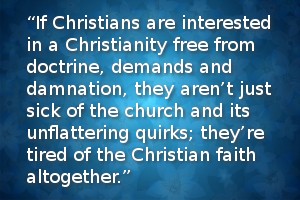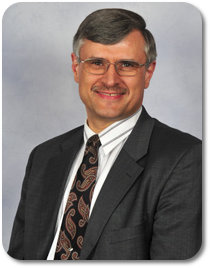Book Review - Who Stole My Church?
[amazon 078522601X thumbnail] [amazon 078522601X] [amazon 078522601X binding], [amazon 078522601X numberofpages] pages |
I have had an on again-off again relationship with Gordon MacDonald. As a young associate pastor in the mid-eighties I read his best seller, Ordering Your Private World (which is still in print). A couple of years later I read his book, Renewing Your Spiritual Passion. Although it was twenty-five years ago, I vaguely remember spiritually profiting somewhat from those books, although if I were to re-read them now, I might have a different opinion. However, the fact that he has admitted that he was involved in an extra-marital affair while writing those books kind of soured me on him. I did not read his Rebuilding Your Broken World or anything else by him. (That may be more of a reflection upon my former Phariseeism than his restoration.)
Gordon MacDonald has been a pastor and author for more than forty years. He has also been the president of a couple of well-known parachurch organizations, and is currently an editor at large for the magazine Leadership. He and his wife of almost fifty years live in New Hampshire.
This book first caught my eye a couple of years ago when it came out in hardback. I skimmed it a couple times at the bookstore, but didn’t want to pay the hardback price. However, when I eventually saw it in paperback, I plopped down my money. I am glad I did.
The subtitle of this book is “What to Do When the Church You Love Tries to Enter the 21st Century.” It is a fictional tale told in the first person. MacDonald writes as a pastor of an imaginary New England congregation of a few hundred people. The church has had a proud history and is part of an unnamed denomination. The sixty-ish “Pastor MacDonald” has been at the church for several years and has overseen the last of a series of changes designed to attract younger people. Not everyone is on board with these changes—especially the aging “boomer” generation. Plus, there are more changes on the horizon. A proposed $150,000 initiative to upgrade the sanctuary’s technology did not get the expected congregational approval. This has brought the change issues to a head. Also being debated is a proposed name change for the church.
 By James Rickard. Reprinted with permission from the
By James Rickard. Reprinted with permission from the 
 This article was first published in the
This article was first published in the 
 This article was first published in the Baptist Bulletin (September/October 2008) and appears here unedited. Used by permission. All rights reserved.
This article was first published in the Baptist Bulletin (September/October 2008) and appears here unedited. Used by permission. All rights reserved. One of our young people and his friend from another church interviewed a number of pastors in the Kokomo (IN) area. To their surprise, a number of them could not recite the Ten Commandments.
One of our young people and his friend from another church interviewed a number of pastors in the Kokomo (IN) area. To their surprise, a number of them could not recite the Ten Commandments. The following is reprinted with permission from
The following is reprinted with permission from  Steven Joseph Stratford, the director for institutional research at Maranatha Baptist Bible College and a pioneer in integrating computers into church ministry, died on Saturday in Watertown, Wis. He was 52.
Steven Joseph Stratford, the director for institutional research at Maranatha Baptist Bible College and a pioneer in integrating computers into church ministry, died on Saturday in Watertown, Wis. He was 52.
Discussion